Kristina, Lauri, and Alayna traveled to Barcelona, Spain to kick off the end of the semester at the World Marine Mammal Conference. This biennial conference, which this year was jointly hosted by the Society for Marine Mammalogy and the European Cetacean Society, attracted over 2700 scientists, policy-makers, conservationists, and other interested parties from around the world.
Alayna and Lauri both presented posters on their Masters research at the conference.
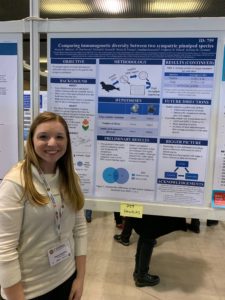
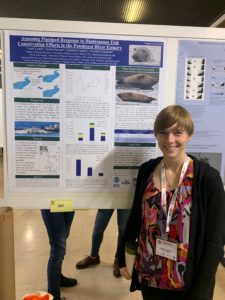
Kristina co-organized a conference workshop on Marine Mammal eDNA. Six invited speakers shared lessons learned from their experiences using eDNA (environmental DNA, or the genetic material that organisms leave behind in their environments through sloughing skin, etc.) to study marine mammals. Sixty workshop attendees then discussed their questions, concerns, and hopes about the potential of eDNA to move our field forward.
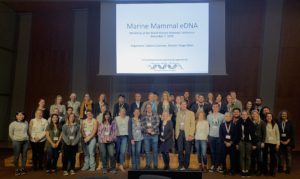

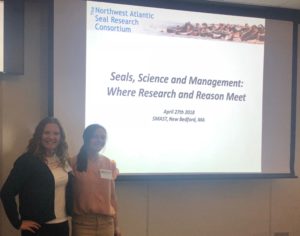
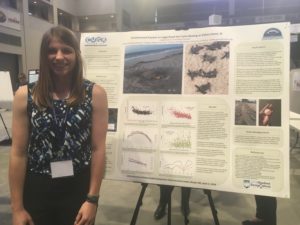 Faythe Goins presented her honors thesis research, Environmental Impacts on Loggerhead Sea Turtle Nesting on Edisto Island, SC, at the 2018 UMaine Student Symposium and won
Faythe Goins presented her honors thesis research, Environmental Impacts on Loggerhead Sea Turtle Nesting on Edisto Island, SC, at the 2018 UMaine Student Symposium and won 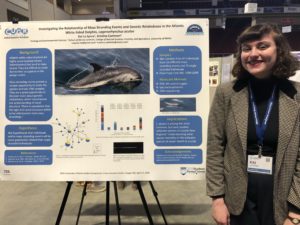 Kai LaSpina presented preliminary results from her Capstone research, Investigating the relationship of mass stranding events and genetic relatedness in the Atlantic white-sided dolphin, Lagenorhynchus acutus, at the
Kai LaSpina presented preliminary results from her Capstone research, Investigating the relationship of mass stranding events and genetic relatedness in the Atlantic white-sided dolphin, Lagenorhynchus acutus, at the 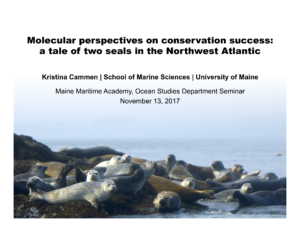 This past month has been a wonderful whirlwind of work-related travel, to and from Canada (twice!) and roundabout Maine. I kicked off the month with a trip to the University of New Brunswick in St. John to give an invited seminar to the Biology Department. The following week, I ferried across the Bay of Fundy to the Society for Marine Mammalogy biennial conference held this year in Halifax. Finally, earlier this week I gave a seminar at Maine Maritime Academy.
This past month has been a wonderful whirlwind of work-related travel, to and from Canada (twice!) and roundabout Maine. I kicked off the month with a trip to the University of New Brunswick in St. John to give an invited seminar to the Biology Department. The following week, I ferried across the Bay of Fundy to the Society for Marine Mammalogy biennial conference held this year in Halifax. Finally, earlier this week I gave a seminar at Maine Maritime Academy.